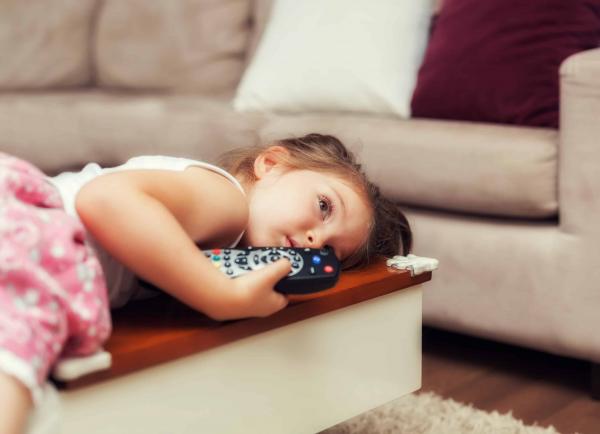
Today's young children grow up immersed in media. From birth they are exposed to television, video games, tablets, cell phones and more. It's easy for parents to use this technology to keep kids distracted and out of your hair for a few hours. But that may not be the right thing to do. Pediatricians at the AAP have released new guidelines for screen time for your children. The following six recommendations may surprise you:
Children younger than 18 months should avoid screen media
Infants and toddlers should have "creative, unplugged playtime" and stay away from unnecessary screen time. The AAP suggests that parents make "unplugged playtime" a priority for their children as it will foster growth and imagination in the very early stages of their life.
Children 18 to 24 months should watch high-quality programming with parents
This is the age where media can have an educational value to children. When introducing digital media to your children, stick to high-quality, educational programming. Parents are encouraged to watch with their children to help them understand what they are seeing. Again, parents are reminded to keep this screen time limited and still prioritize creative and unplugged playtime as much as possible.
Children 2 to 5 years should watch only 1 hour of high-quality programming
Children in this age range should watch only 1 hour or less of high-quality, educational programming per day. It's suggested that parents co-view media with their children to not only help them understand what they are seeing but to apply it to the world around them. This will open their minds to the world, expand their understanding of other people and cultures, and instill in them respect for everyone they come across.
Children 6 years and older should have consistent limits on time spent consuming media
The recurring suggestion for young children is to keep screen time as limited as possible. This is still true for children six years and older. There is no hourly limit suggested, leaving the decision to the parents and what they believe is right for their children. Children at this age have expanded their media use from the TV to other forms of media, like games and activities on a cell phone or tablet, social media use, computer use and video games. All media use should be limited and it shouldn't take the place of adequate sleep, physical activity or other behaviors essential to health and growth.
Designate media-free times spent together as a family
This means turning off the TV, putting the cell phones and tablets away, and focusing on the here and now rather than what's happening elsewhere. Parents must make the decision about when to turn off media, whether it's at dinner, while driving or if certain locations in the home are designated media-free zones (like the bedroom). Having times and locations that are media-free fosters communication and growth within the family. These places and times allow real and fun memories to be made.
It's up to the parents to be the example for their children. If parents expect their children to put their phones away at the table, parents should do the same. In order for the family to truly connect during media-free time, no one should be exempt from limiting screen time (unless special circumstances arise.)
When living in a world so inundated with media, sometimes it's nice to turn the TV off, put the phone away, and just live in the moment. Like this woman:
If anything, this woman is a reminder to all of us that it's not about the amount of pictures or videos we have on our phone to prove we were there, but to live in the moment - to see the world with our own eyes and not through a screen. Memories are powerful things.
Communicate with your children about online safety and how to be respectful both online and offline
With media being such an important part of our lives, it's important for parents to teach their children online safety. Parents need to teach their children to keep their lives private and to refrain from giving out any personal information to anyone on the Internet. There are dangerous people in the world and the Internet is full of them. Facebook and Twitter isn't a personal diary or a place to vent about all of life's problems. They most certainly aren't the place to gossip or bully someone.
Treat people the way you want to be treated - this is the same for real life interactions as well as online ones. Though they may not seem like it, those we come across online are people too, with real lives. Parents, teach your children to treat others with respect both online and offline. A little kindness and respect will go a long way.
There's no way to avoid media, but there are ways to limit it. Media limitations are healthy for children and allow them to expand their understandings and imaginations. It's ultimately up to the parents to decide the healthy balance between media consumption and other activities in the home. These six recommendations are a good place to start.

